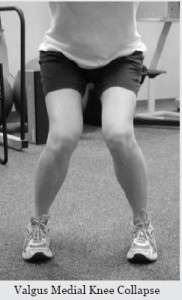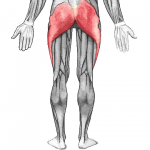“Which brings me to the point. You can’t force things. In life or in running. You’ve got to let them come to you.”
– Steve Magness, Science of Running
I’m a big fan of Steve Magness’ work. He is both a researcher and an in-the-trenches running coach. His site the Science of Running is full of excellent information. His book (also titled The Science of Running) is a must-read for running coaches and any serious runner.
Under pressure
I greatly appreciate his latest blog post titled New Year’s Reflections and Anti-resolutions. He discusses resolutions and the high failure rate experienced by those undertaking them. He observes that a lot of us feel forced to make decisions and when that happens, we make bad decisions. When we feel cornered and pressured to accomplish or achieve something then we often don’t get the results we want. He says:
“Today, with social media, an ability to instantly compare ourselves to any of our peers, and a high premium placed on accomplishments and ‘success’, it’s hard to escape the feeling that we have to do something. We have to accomplish some goal, take some job, marry some guy or gal, all on some set time line or else we’re perceived as a failure. Society and culture put us in a place of ‘forcing’ us to do something.”
I can definitely relate to this scenario. I sometimes feel pressure when I observe the accomplishments of others in my field, or when I look at the athletic feats of men my age. It’s easy to feel like I don’t measure up, that I’m not “enough.” Later in this post I’ll give some evidence that by letting my mind wander to others’ achievements, I’m probably undermining my contentment in life.
Here is more from Magness:
“Which brings me to the point. You can’t force things. In life or in running. You’ve got to let them come to you.
In running, big breakthroughs occur when you let them happen. You’re more relaxed while still driven and focused during the race versus tense and pressing in which you are trying to force a new Personal Record. Ask any sprint coach if people run faster relaxed versus tensed and you will find your answer to why forcing a race does not work.”
There is power in being mentally engaged in the here-and-now rather than longing for the end product. Most of us have probably experienced this when we try really hard at almost anything. From a golf swing to trying to impress a date or a boss, if we bear down too much and try to force it we rarely get the results we want.
Flow
In contrast to forcing things, we would ideally relax and perhaps just react to events. Psychology researcher Dr. Mihaly Csikszentmihalyi calls this the “flow” state:
“These are moments in which your mind becomes entirely absorbed in the activity so that you ‘forget yourself’ and begin to act effortlessly, with a heightened sense of awareness of the here and now (athletes often describe this as ‘being in the zone’). You may be surprised to learn, however, that in recent years this experience has become the focus of much research by positive psychologists. Indeed, the psychologist Mihaly Csikszentmihalyi has even given it a name for an objective condition — ‘flow.'”
I’ve been fortunate enough to experience flow on the ski slopes–though not nearly as often as I’d like! Everything works. I turn effortlessly. I’m in total control. I move but I’m not aware of how it’s happening. I often feel this way when I trail run, mountain bike, lift heavy weights or when reading a great book. Life is best when I feel this “flow.”
Process, oh how I love the!
I recall conversations about training I’ve had with a friend. Much of his life is devoted to triathlon specifically and intense physical activity generally. We both love physical exertion of a sometimes extreme degree, and we both agree that we dearly love the process. Lifting weights. A track workout. A long bike ride. Learning a new exercise. We love every step towards the end goal. We love the beginning when we feel good, the middle when we’re tired and questioning why we’re doing it, and the glorious end when we feel a sense of accomplishment. In loving the process the end goal comes to us.
Magness speaks to loving the process:
“The key though is not simply thinking ‘it will all work out’ but instead acknowledging the first portion which is if you work hard at things you enjoy, love the process, then eventually things will work out. Perhaps not always in the direction you want them to, but for the most part they will.”
(Additionally, it’s during intense training that we are wholly focused on the task at hand. More on that in a moment.)
Chasing a mirage
I like Magness’s analysis of being process-focused rather than outcome-focused:
“We get caught in the rat race of trying to chase success, satisfaction, happiness, and outcomes. The reality is that this is simply an evolutionary mechanism designed to keep us engaged. Researchers have found that it’s not the actual reward that gives us the most bang for our buck in terms of the wonderful feel good hormone of Dopamine. Instead, it’s the chase that gives us the huge bump in Dopamine.
We’re designed for the process, but we focus on the outcome. It’s this nice little trick of mother nature that makes us follow through and get things done. It’s why we suffer from this nice fallacy of ‘If only I had X, I’d be happy/satisfied/whatever…’ We then chase X, feeling pretty good about ourselves as we chase it, but then are torn down by the feeling of discontentment when we finally reached our goal and while the payoff was nice, it most certainly doesn’t meet pre-conceived expectations. So we are left with the inevitable ‘so what now…’ that predictably follows.”
He says, “If I only had X, I’d be happy…” I believe a lot of us go through life this way, basing our contentment on external things: a race outcome, a flat stomach, a girlfriend/boyfriend/spouse, money, a house in a certain neighborhood… In other words, we’re looking for the perfect circumstance when everything goes right–then we’ll be happy!
In this scenario, we’re looking outside ourselves for contentment, fulfillment and happiness. We’re looking for affirmation of ourselves via things that we may not control. Interestingly, when we achieve one of these things (say hitting a PR in the deadlift, taking 2 minutes off your marathon time or making X amount of money) have we actually found happiness? Maybe…. But often we’ve simply obtained one of these things and we’re not actually any happier, so we keep looking for the next magic thing that will fulfill us.
(In my experience, by chasing happiness that we believe lives outside us, we’re really chasing a mirage. The external thing that we covet so much rarely if ever lives up to expectations.)
Happiness through focus
A 2010 study called A Wandering Mind Is an Unhappy Mind seems relevant to some of these ideas. The research was done by psychologists Matthew A. Killingsworth and Daniel T. Gilbert of Harvard University. Here are some paragraphs that deserve consideration, starting with what I think is the big picture on wandering minds:
“A human mind is a wandering mind, and a wandering mind is an unhappy mind,” Killingsworth and Gilbert write. “The ability to think about what is not happening is a cognitive achievement that comes at an emotional cost.”
“Mind-wandering is an excellent predictor of people’s happiness,” Killingsworth says. “In fact, how often our minds leave the present and where they tend to go is a better predictor of our happiness than the activities in which we are engaged.”
When are we happiest?
Killingsworth and Gilbert found that people were happiest when making love, exercising, or engaging in conversation. They were least happy when resting, working, or using a home computer.
(Hey! Wow! Exercise!)
Finally,
“Time-lag analyses conducted by the researchers suggested that their subjects’ mind-wandering was generally the cause, not the consequence, of their unhappiness.”
What am I saying?
I believe that I’m advocating for finding activities that demand our full mental engagement. The phrase “live in the moment,” seems appropriate (even though it sounds cliche and a bit too cute for my taste–it happens to encapsulate a great concept!) There is a subtle, sublime state of mind that can’t be found by multi-tasking (possibly the ultimate non-focused happiness killer) or keeping up with the Joneses. Further, the focus on the process keeps us “in the moment.” If we can find a love for the process–rather than a fixation on the outcome–then I believe we can find a healthy dose of happiness.


